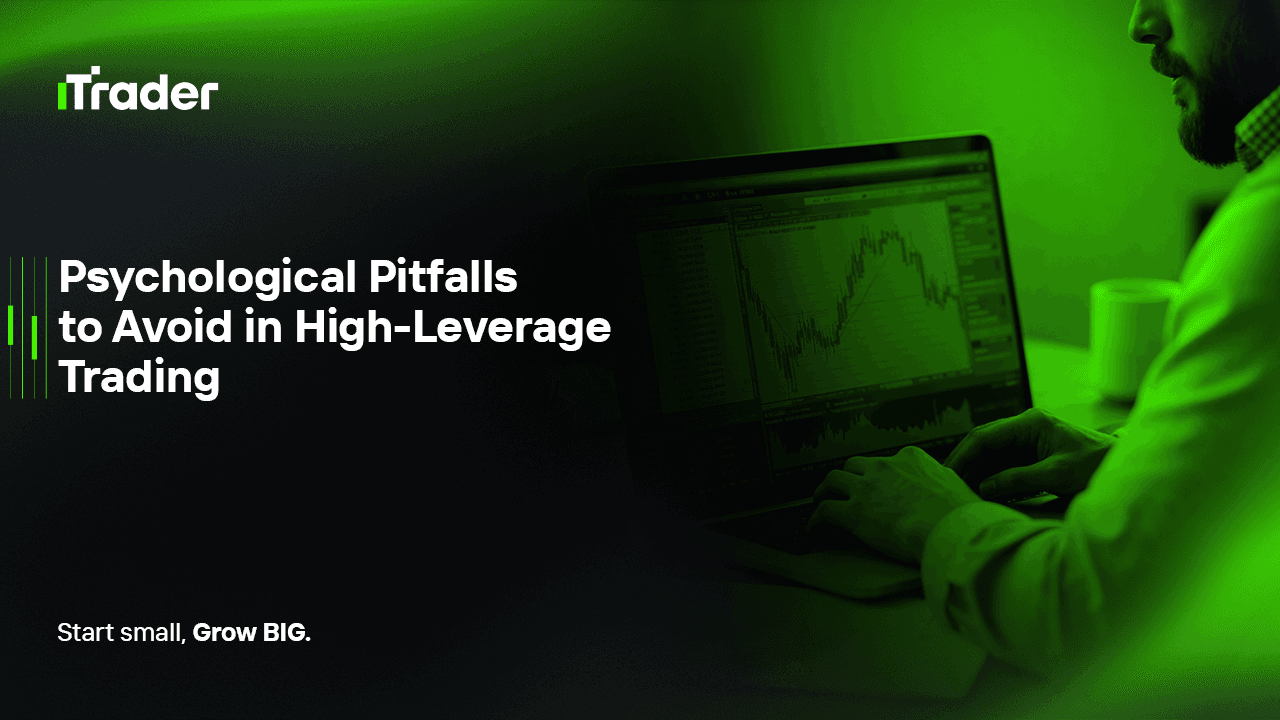2025-07-24
In the forex market, leverage is one of the most powerful tools available to traders. Prop firms often offer leverage ratios as high as 1:50, 1:100, or even 1:500, enabling traders to control large positions with minimal capital. While this creates opportunities for substantial profits, it also magnifies risk. A single mistake can wipe out an entire account. In such environments, technical skill alone is not enough—emotional discipline and self-regulation become paramount.

Why is psychology so important in trading? Because every trading decision—when to enter, when to exit, how much to risk—is deeply intertwined with emotional reactions. Under the pressure of high leverage, rational thinking often gives way to reactive behavior driven by stress, fear, or overconfidence.
AI Summary:
This article explores the common psychological pitfalls that forex prop traders face when trading with high leverage and provides practical methods to overcome them. Topics include loss aversion, overconfidence, revenge trading, and fear of missing out (FOMO). By developing structured emotional control techniques, traders can build long-term consistency and resilience in a highly leveraged environment.
According to Prospect Theory by Kahneman and Tversky, humans are more sensitive to losses than they are to equivalent gains. In trading, this manifests as an unwillingness to close losing trades, even when a stop-loss should have been hit. Traders hope for a reversal and hold onto losing positions far too long. Under high leverage, even a minor price move against you can result in a catastrophic loss if this bias is not managed.
After a series of winning trades, traders may start to believe they “understand” the market or that it somehow conforms to their analysis. This can lead to dangerous behavior—overleveraging, removing stop-losses, or taking impulsive trades with an unjustified sense of certainty. The truth is, no one can predict the market with absolute accuracy, and overconfidence under leverage leads to disproportionate risk.
After taking a loss, traders often experience anger and frustration, prompting them to “get back” at the market. This results in emotionally driven decisions, often with larger position sizes and less planning. In its most extreme form, traders double down to recover their losses quickly—one of the fastest ways to blow up a leveraged account.
Sudden market movements often provoke anxiety in traders who feel they are missing out on an opportunity. FOMO leads to spontaneous trades that deviate from a trader’s plan or system. In a high-leverage environment, a single impulsive trade made out of fear can result in significant losses.
Setting constraints before trading begins is a powerful way to regulate emotions. This includes:
The key is to make decisions while calm—not in the heat of a trade where pressure and emotions cloud judgment.
This refers to automatic stop mechanisms that pause trading during periods of emotional instability. For example:
These rules give the trader space to reset and analyze without pressure, preventing a spiral of emotional decision-making.
Traders should keep a journal not only for trade data but also for psychological states. After each trade, reflect on:
This habit allows traders to identify recurring patterns, understand emotional triggers, and make gradual improvements over time.
Just because a prop firm offers 1:100 or 1:500 leverage does not mean you should use it all. Leverage should match your emotional capacity. Each trader has a unique emotional threshold, and managing risk within your personal limits is essential for long-term sustainability. Leverage is a tool—not a necessity.
Prop trading environments are structured to test performance under strict rules and time constraints. Even if a strategy is solid and the system is backtested, a trader can fail if their psychological resilience is lacking.
Common psychological pressures in prop firms include:
These create a mental environment ripe for emotional decisions. Therefore, prop traders must go beyond technical competence and train themselves for psychological endurance.
Emotional discipline is not about suppressing emotions—it’s about recognizing and managing them effectively. A trader’s psychology consists of habits, tendencies, and a continuous process of self-discovery. Developing it requires daily awareness, practice, and structure. This includes:
Only when a trader gains control over their internal world can they wield leverage in their favor rather than it working against them.
High leverage in the forex market presents powerful opportunities, but it also introduces severe psychological risks. Success in trading is not just about analyzing price or timing entries—it depends largely on a trader’s ability to stay emotionally grounded, follow a system, and recover from mistakes without spiraling into destructive behavior.
Prop traders especially must prioritize emotional regulation as much as they do strategy. When properly managed, psychological resilience becomes a trader’s greatest edge—ensuring that leverage becomes an ally instead of a liability.
© 2025 iTrader Global Limited | 회사 등록번호: 15962
iTrader Global Limited는 코모로 연방 앙주앙 자치섬의 무잠두(Hamchako, Mutsamudu)에 위치하고 있으며, 코모로 증권위원회(Securities Commission of the Comoros)의 인가 및 규제를 받고 있습니다. 당사의 라이선스 번호는 L15962/ITGL입니다.
iTrader Global Limited는 “iTrader”라는 상호로 운영되며, 외환 거래 활동에 대한 인가를 받았습니다. 회사의 로고, 상표 및 웹사이트는 iTrader Global Limited의 독점 재산입니다.
iTrader Global Limited의 다른 자회사로는 iTrader Global Pty Ltd가 있으며, 이 회사는 호주 회사 등록번호(ACN): 686 857 198을 보유하고 있습니다. 해당 회사는 Opheleo Holdings Pty Ltd의 공식 대리인(AFS 대표 번호: 001315037)이며, Opheleo Holdings Pty Ltd는 호주 금융서비스 라이선스(AFSL 번호: 000224485)를 보유하고 있습니다. 등록 주소는 Level 1, 256 Rundle St, Adelaide, SA 5000입니다.
면책 조항: 이 회사는 본 웹사이트에서 거래되는 금융 상품의 발행인이 아니며 이에 대해 책임을 지지 않습니다.
위험 고지: 차액결제거래(CFD)는 레버리지로 인해 자본 손실이 빠르게 발생할 수 있는 높은 위험을 수반하며, 모든 사용자에게 적합하지 않을 수 있습니다.
펀드, CFD 및 기타 고레버리지 상품의 거래에는 전문적인 지식이 요구됩니다.
연구 결과에 따르면 레버리지 거래자의 84.01%가 손실을 경험하고 있습니다. 거래에 참여하기 전에 관련 위험을 충분히 이해하고 전체 자본을 잃을 준비가 되어 있는지 확인하십시오.
iTrader는 레버리지 거래로 인해 발생하는 손실, 위험 또는 기타 피해에 대해 개인 또는 법인에게 전적인 책임을 지지 않음을 명시합니다.
이용 제한: iTrader는 해당 활동이 법률, 규제 또는 정책에 따라 금지된 국가의 거주자를 대상으로 본 웹사이트나 서비스를 제공하지 않습니다.